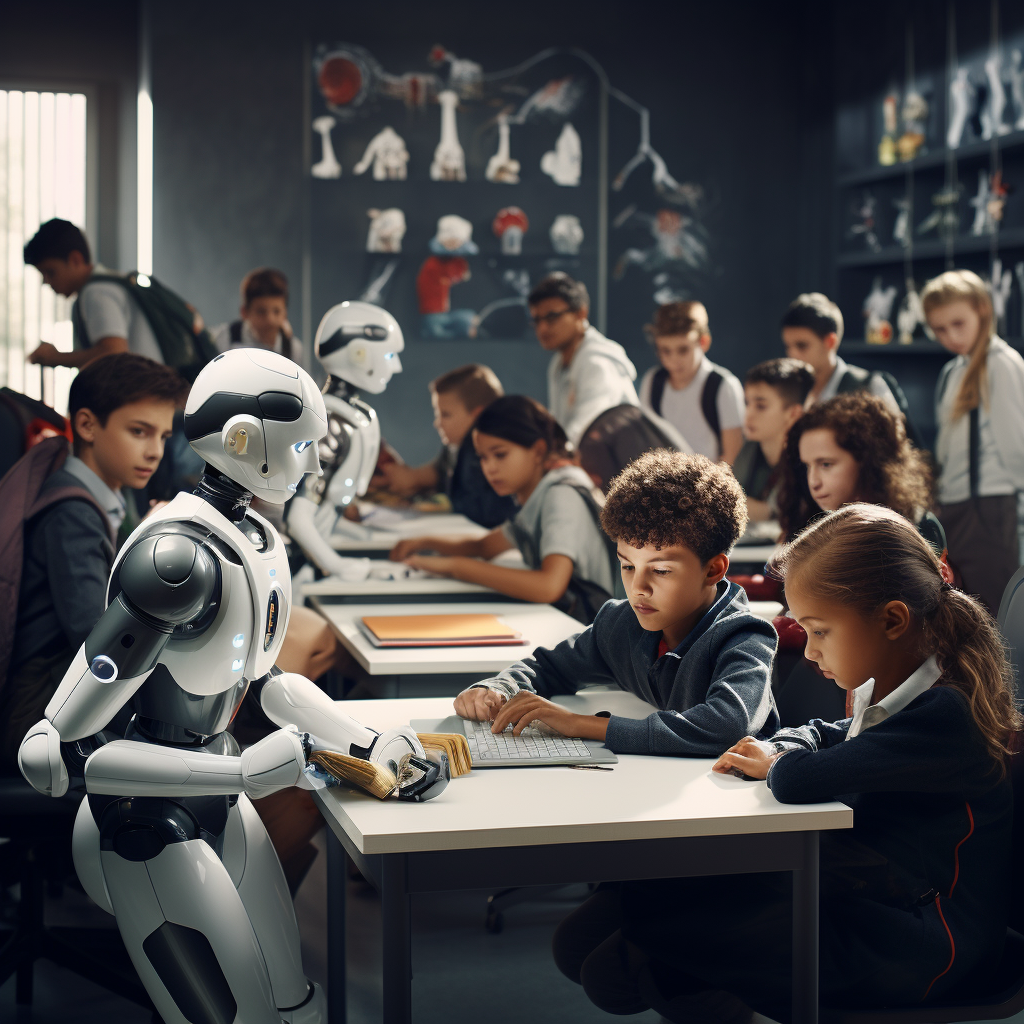As someone always interested in education and technology, I often think about how artificial intelligence (AI) can be used to improve children’s learning. I know the term AI arouses concerns for some parents and teachers. In this note, I will share some thoughts about the potential benefits AI could bring to students.
When I think about AI in the classroom, I imagine a learning experience that is truly personalized.
I see AI serving teachers as they help students learn.
I see AI serving students as individuals with different/unique learning needs.
I see AI as a tool that can be used by teachers to help students and be used by students to help themselves.
When I write and talk about what AI could do, the context will always be based on those three thoughts.
AI has the ability to understand each student’s unique learning style, strengths, and weaknesses. It can then tailor content and provide recommendations that suit each learner. Consider it as every teacher having a set of assistant tutors, one tutor for each student. For each student, teachers and students would benefit from the AI-enhanced customized support and guidance. The goal would be to optimize the content and pace of education for each student. This would be particularly valuable during the early stage of children’s education.
I also see AI playing a role in delivering immediate feedback. It could assist teachers by automating grading for certain tasks, which not only saves time but also provides students with instant feedback. This can help both students and teachers identify areas of improvement and learn more effectively. For example, AI can aid in language learning. With interactive lessons, speech recognition, and pronunciation evaluation, children and adults could receive additional support as they learn new languages.
The idea of AI being able to recommend educational content tailored to our children’s interests and learning history brings many possibilities. This could foster a love for self-directed learning and help children discover relevant and engaging content, fuelling their curiosity and desire to learn.
The use of AI in immersive learning through virtual reality could help create vivid, engaging, and memorable educational experiences. Imagine stepping back in time to witness historical events or conducting experiments in a simulated lab. Students could enjoy these types of experiential learning.
AI brings numerous possibilities for education.
Yes, we do need to make sure AI is used in careful and ethical ways. It is crucial that AI’s integration in education is transparent and considerate of students’ and teachers’ needs and concerns. The human element in teaching is irreplaceable and AI should be seen as a tool complementing the teaching process. AI must be set up and used in ways that enhance teachers’ ability to reach each student.
My goal is to help parents feel more comfortable with AI and understand its potential value in our children’s education. With careful implementation and responsible use, I believe AI can be a great ally in our mission to provide the best education.

